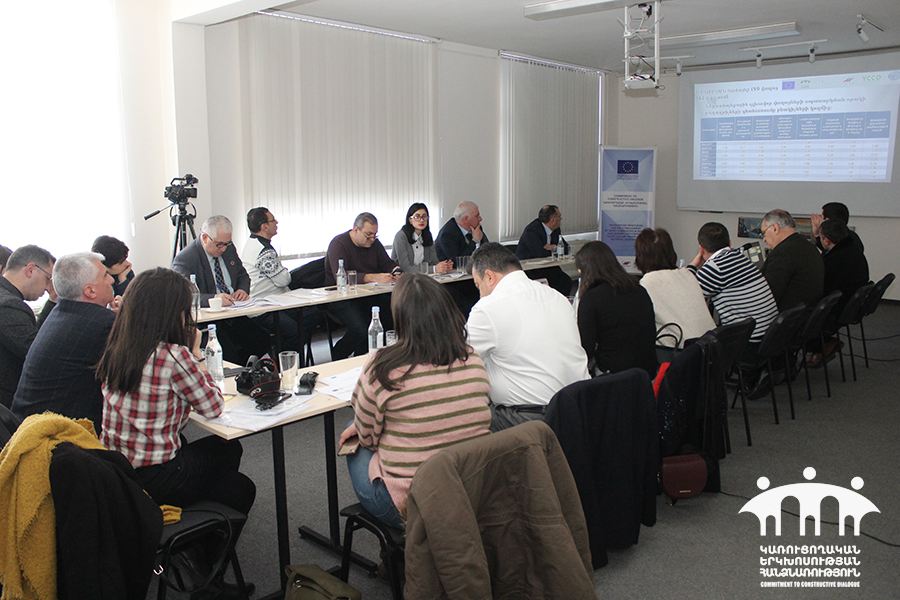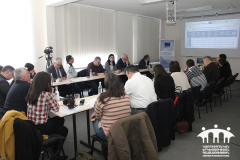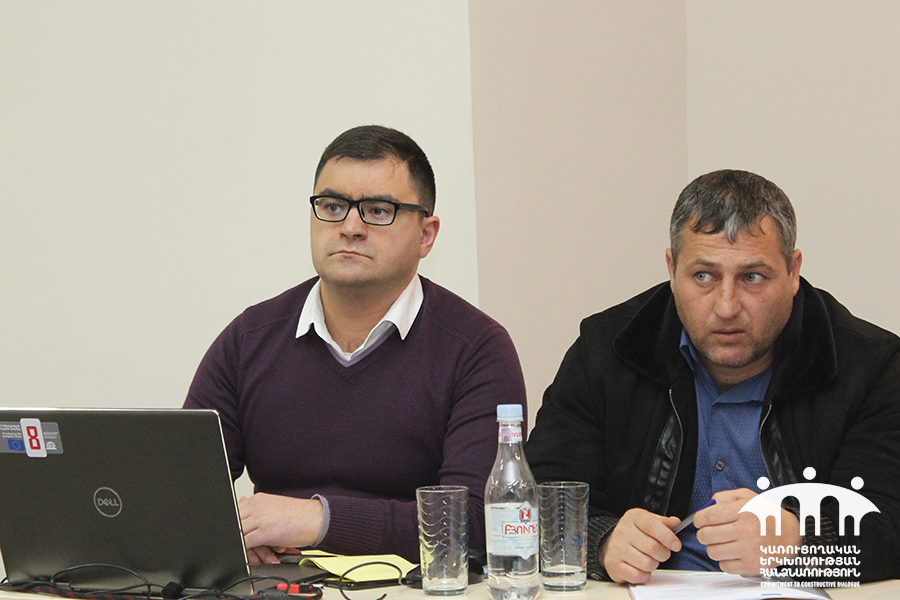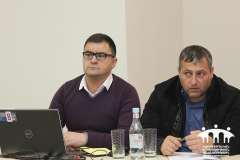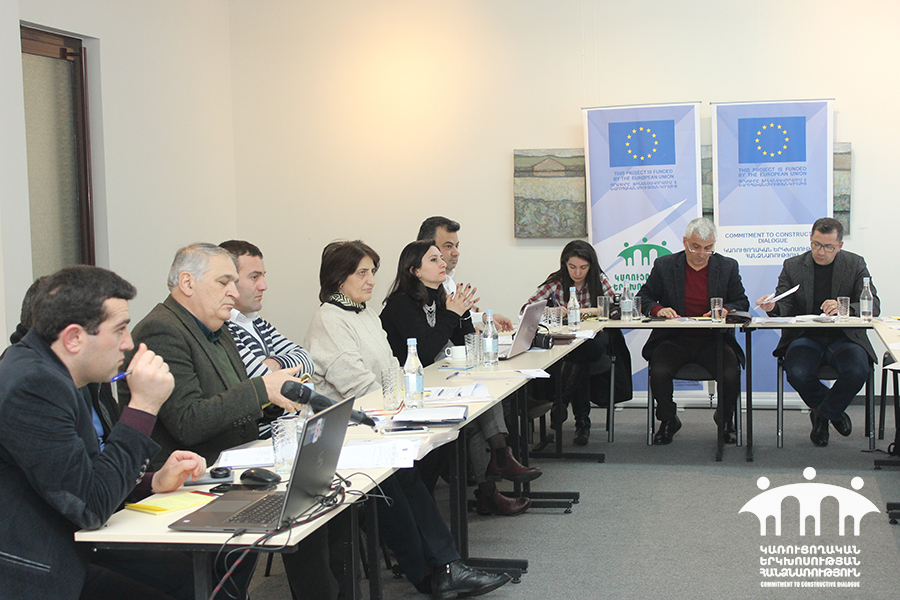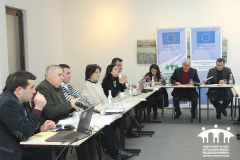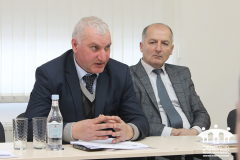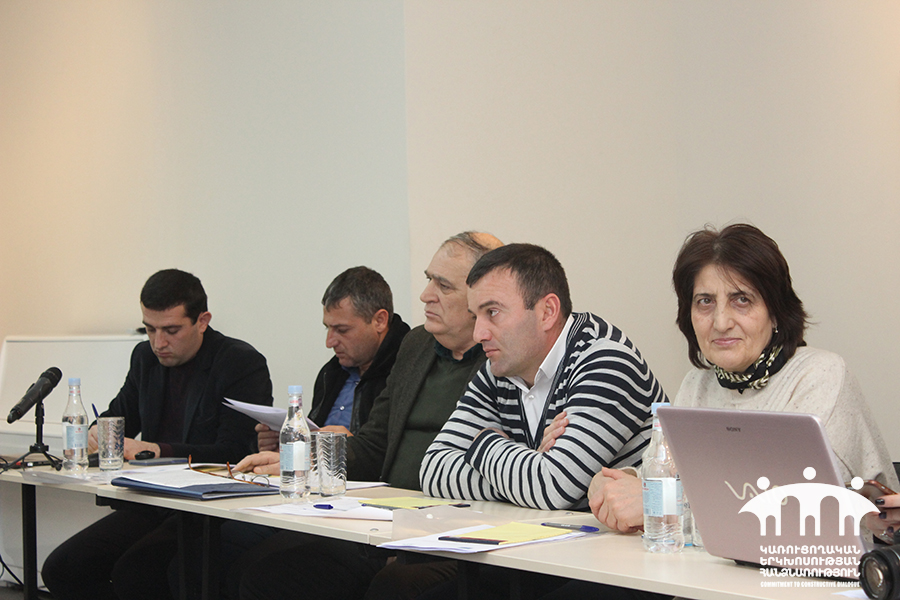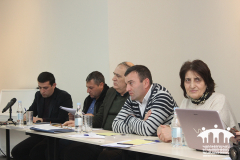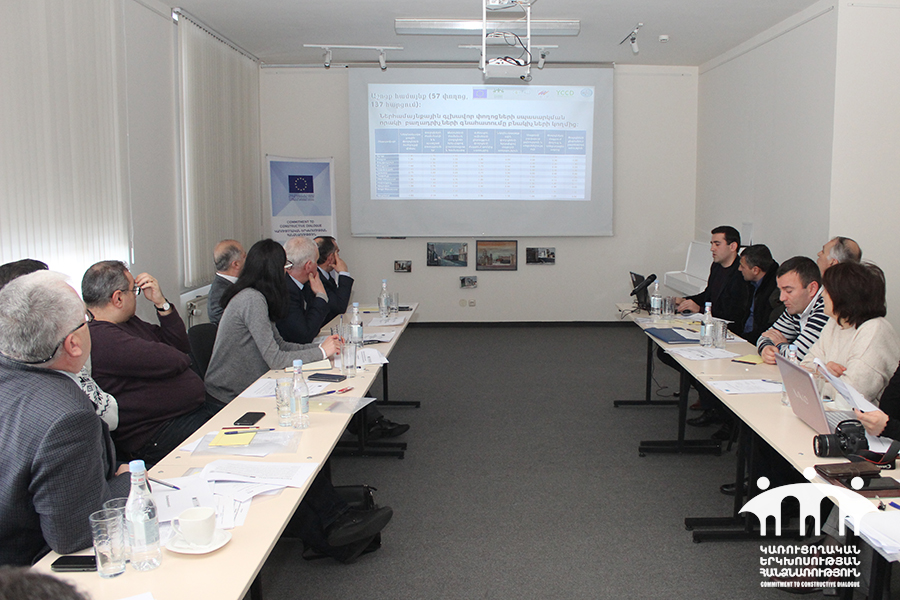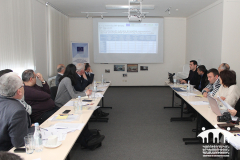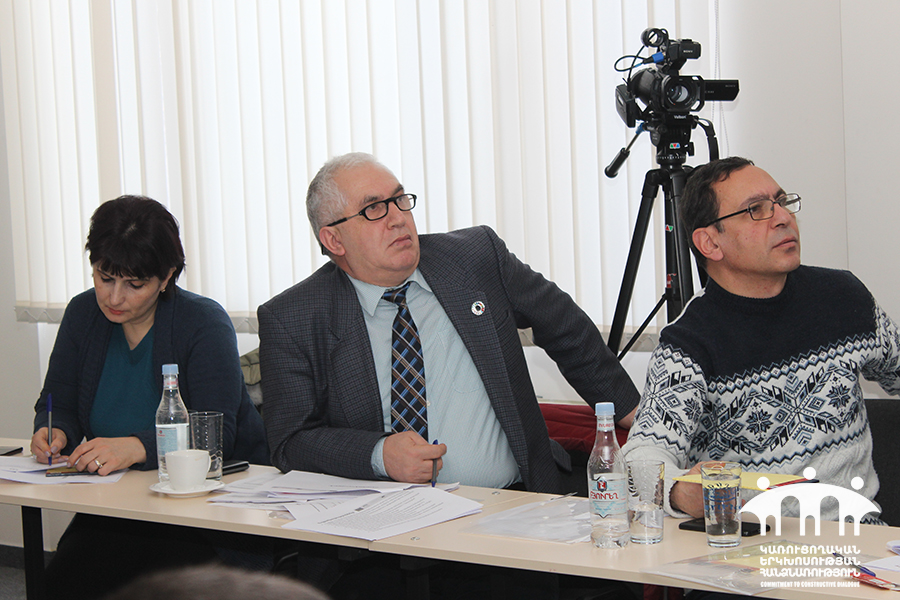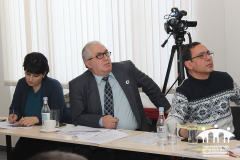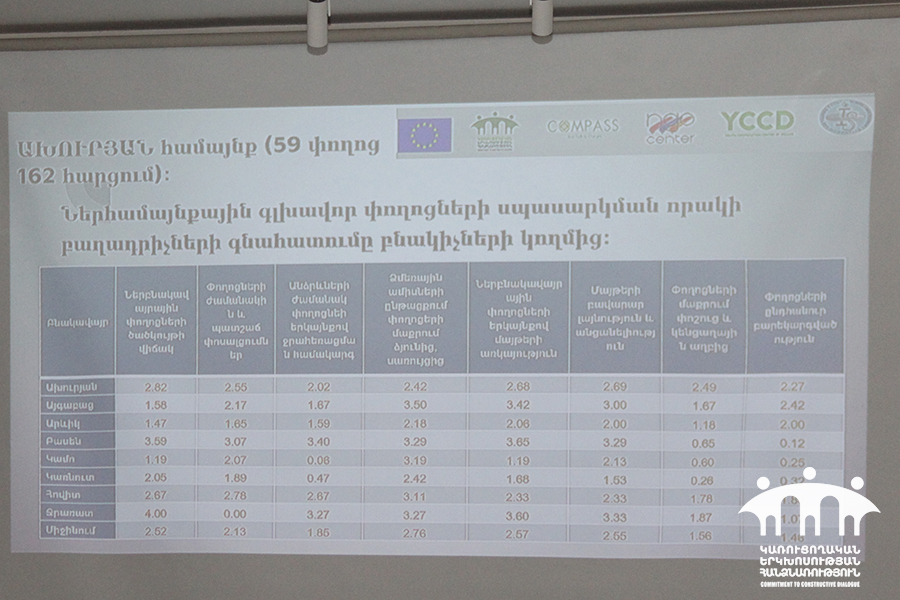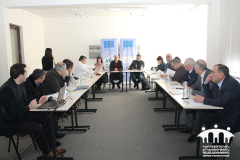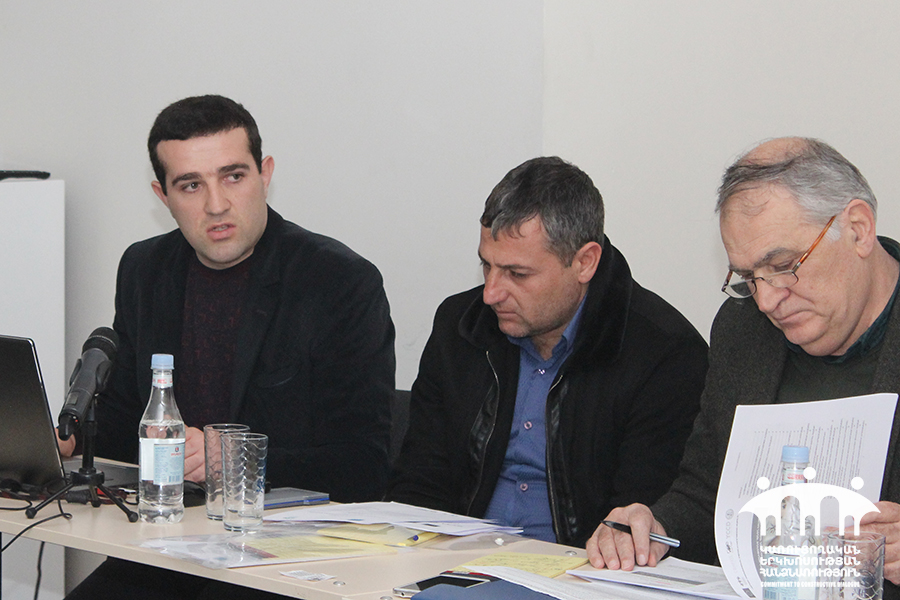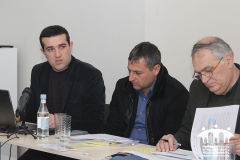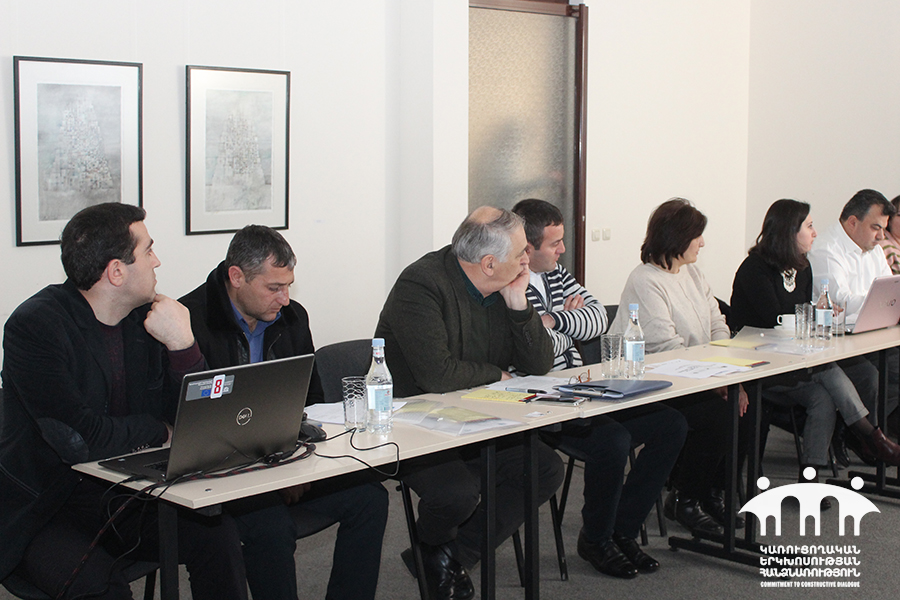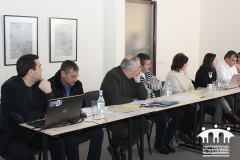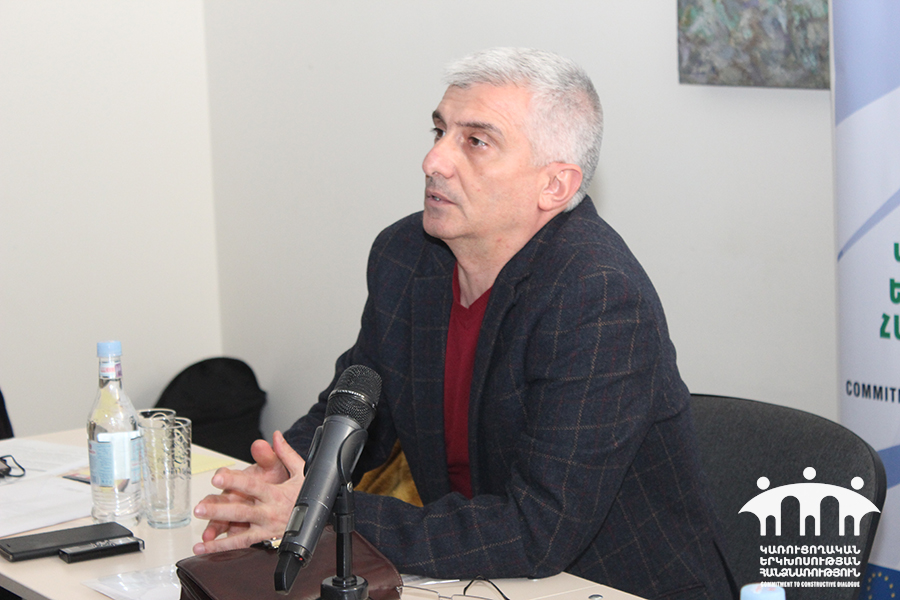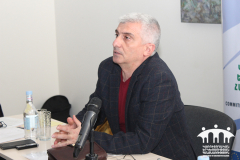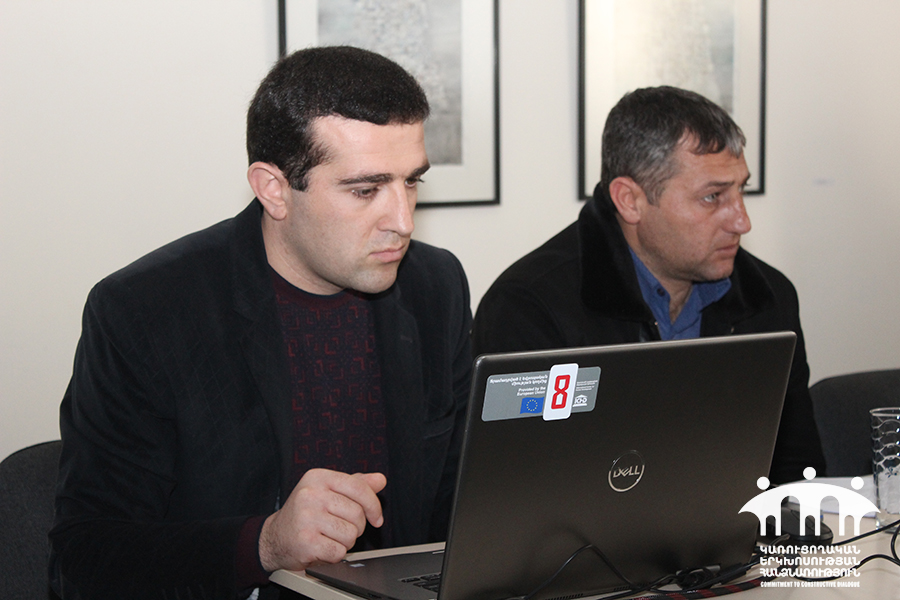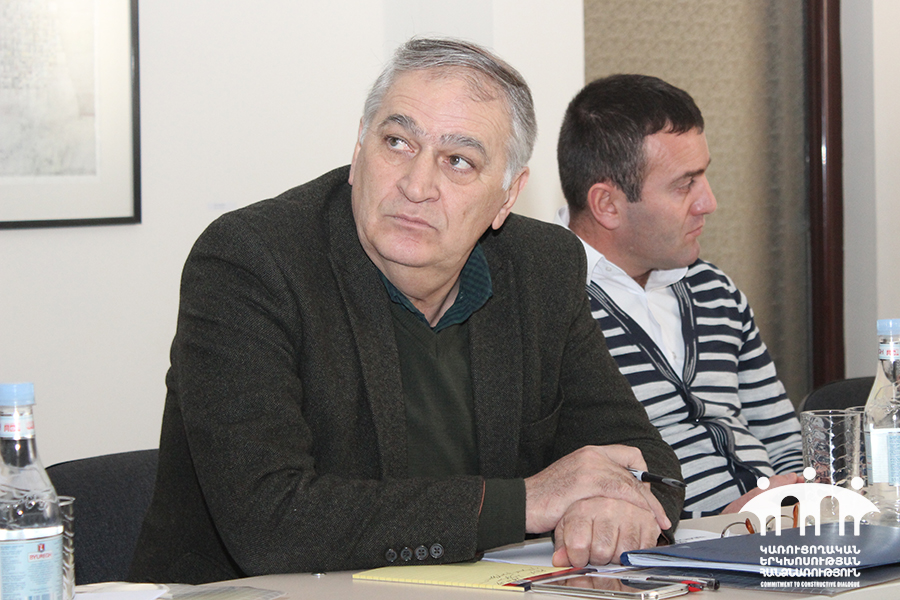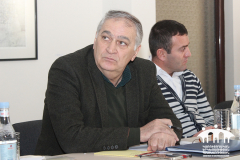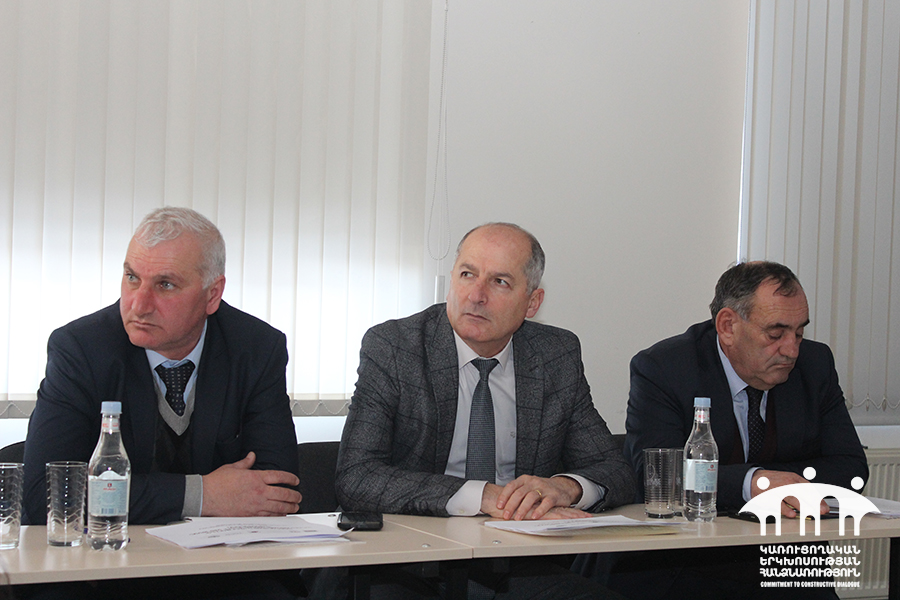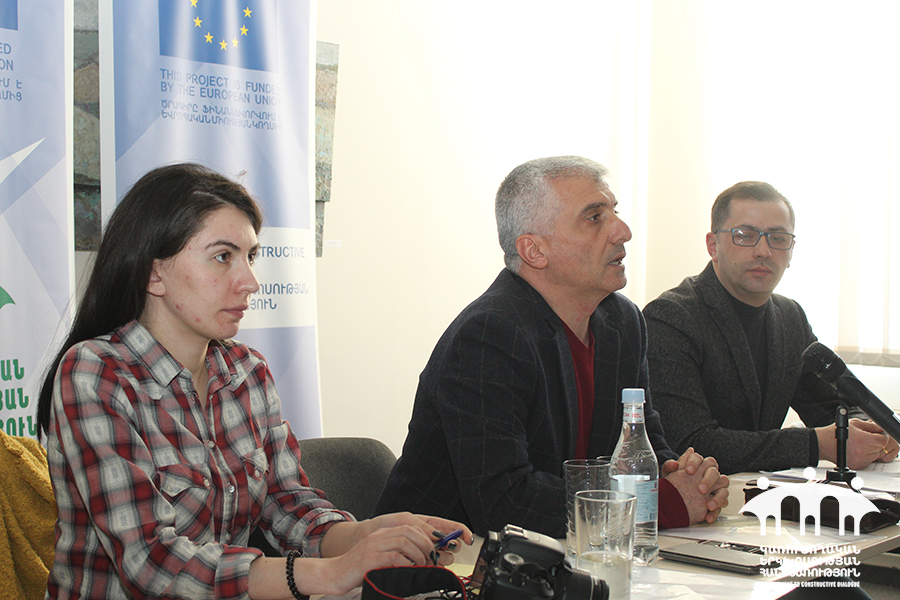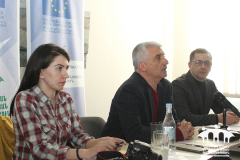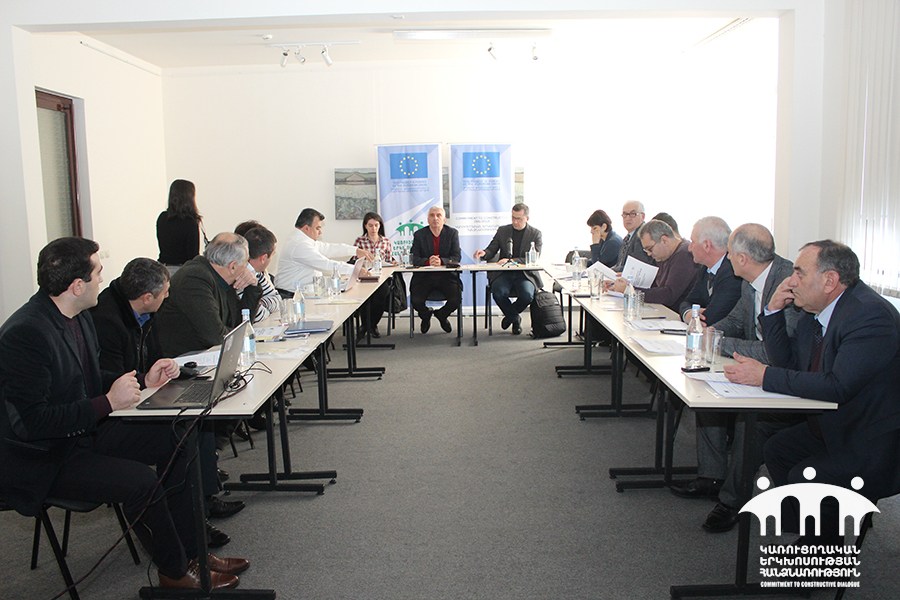
On 29 January 2019, a round table discussion was held in Gyumri in the scope of the “Commitment to Constructive Dialogue” project funded by the European Union. The discussion was titled “Problems Related to Maintenance of Inter-Community Roads as a Subject for Discussion with the Society and Local Government Body.” Representatives of both the civil society and local government bodies participated.
Procedural questions of the discussion were presented by Armen Galstyan, the Executive Director of the International Centre for Human Development.
“It is not very convenient to speak about, unveil, and voice in front of the media or an audience the existing problems and obstacles as there is an official viewpoint and there also are opposite personal approaches and points of view․ That is why it is necessary that an atmosphere of trust is created in an audience, the stances of the parties should be heard, the problems should be discusssed and their solutions should be suggested, no reference should be made to any head of state or non-governmental agency. This would give a chance to have a more open discussion,” Armen Galstyan said.
Haykaram Drmeyan, the “Participatory Monitoring for the Creation of Smart Communities in Armenia” Project Manager and a representative of the “Compass” NGO, presented the “Road Maintenance” report.
He noted that the research goal is to study the field of maintenance of inter-community roads in 6 selected enlarged communities and to evaluate the satisfaction level of community residents with the quality of maintenance service of inter-community roads carried out by community administrations.
“The following goals were targeted by the monitoring:
- To find out the quality of coverage of streets and pavements selected in enlarged communities,
- To disclose the level of road maintenance of the selected enlarged communities,
- To find out the existence and state of the drainage system of the streets selected in large communities,
- To study the level of safety measures of the streets chosen in large communities,” Haykaram Drmeyan said.
It should be noted that 59 streets have been studied in the Akhuryan community, 162 surveys have been carried out, 57 streets and 137 surveys in the Ashotsq community.
The participants expressed opinions that the road construction standards policy should be made stricter as the roads constructed without following the standards start malfunctioning early on which creates a need for double work.
An opposite viewpoint was voiced, that is, to show an innovative approach as the climatic conditions should be taken into account when setting road signs as the signs set on the same height everywhere in the entire republic might not be efficient. There are communities where there is abundant precipitation in winter and they can easily get closed down or damaged.
For good maintenance of roads, in the participants’ words, it is necessary that residents change their approach, in order to use the roads in good will. In order to reach this, the local government must work, design certain norms, build a constructive dialogue with the population. During monitoring, they should also collect data on whether residents fulfill their duties and tax obligations.
It was also mentioned that in order to find funding for road construction and build inter-community roads one must take into account individuals’ problems, for instance, those of a woman passing with a child’s wheelchair, the safety of her children․
According to another opinion, roads in communities should be constructed, taking into account the economic component, e.g., construction of roads leading to the market, without being guided only by the residents’ opinion, as everyone would want to see the road leading to their house constructed.
The discussion was summed up by the conclusion that LGBs must take into account the monitoring carried out by CSOs, work with the population and give priority to them when building inter-community roads.
Analysis of the results of the Chatham House format expert meeting on the “Problems Related to Maintenance of Inter-Community Roads”. (Available in Armenian).


